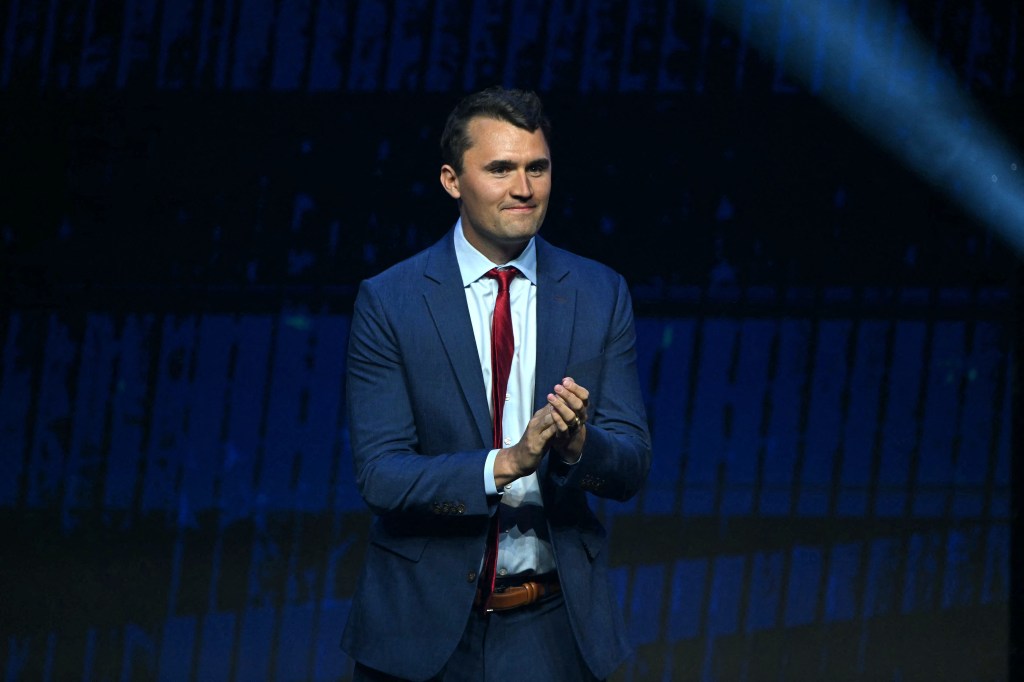
Political violence descends over the land like a heavy curtain falling at the end of a play.
A shooter wounded Donald Trump, and killed an attendee of his rally, in Butler, Pennsylvania, on July 13, 2024.
A shooter killed Brian Thompson, the CEO of UnitedHealthcare, in midtown Manhattan on December 4, 2024 (and was widely celebrated for this cowardly act).
A shooter killed two Israeli Embassy staffers at the Capital Jewish Museum in Washington, D.C., on May 21, 2025.
A shooter killed Minnesota state Rep. Melissa Hortman and her husband and wounded state Sen. John Hoffman and his wife in the suburbs outside of Minneapolis on June 14, 2025.
A shooter killed two children and injured 21 others in an attack on a Catholic church in Minneapolis on August 27, 2025.
Yesterday, on September 10, 2025, a shooter killed the political commentator Charlie Kirk in an attack at Utah Valley University.
David Foster Wallace was fond of telling a joke about fish and water.
Two young fish encounter an old fish.
“How’s the water?” the old fish asks.
“What the hell is water?” one young fish asks the other, once the old fish is out of hearing.
Our most important freedoms are like water.
Most people in the United States, for example, do not fully understand how remarkable it is that they can freely go about their lives, eating in ordinary restaurants and popping into a local coffee shop for their morning granola, without fear of being kidnapped and ransomed and possibly murdered. But as any moderately rich person in Latin America can attest, that is a remarkable civilizational achievement, one that many countries sorely lack.
The same goes for our ability to engage in political debate, and stand up for our views, without fear for life and limb. In many places, and in many periods of America’s own history, it was physically dangerous to say things that might be deeply unpopular among some of your fellow citizens. If you displeased the wrong person, you might have been arrested by the state or beaten up by a mob or assassinated by your political enemies.
It has over the past 50 years been one of the remarkable achievements of liberal democracies to render that fear relatively remote. Though presidents have always had to be closely protected, and the risk that some individual madman might get it into their head to kill some famous public figure for some idiosyncratic reason could never fully be ruled out, most could speak their minds without any rational fear that they may be courting death.
It is trite in these moments to call for political unity. But sometimes, in response to a sufficiently horrible event, trite is right.
Charlie Kirk had great gifts as a communicator. His political activism also earned him a lot of enemies. Those enemies will now be tempted to affix “buts” and “howevers” and “at the same times” to the wave of shock elicited by his assassination. But this is a time to “but me no buts”: to close ranks, across the ideological spectrum, without any hint of hemming or hawing.
Defenders of free speech often worry about the heckler’s veto. Some protesters believe that the First Amendment gives them the right to disrupt the speech of those they do not like. But this is a misunderstanding of the logic of free expression. For if hecklers had the right to disrupt any speech, they would quickly come to be in control of what can and cannot be said. While everyone must be free to peacefully protest forms of expression they do not like, they do not have the right to stop such speech from taking place.
I share those concerns over the heckler’s veto. But the danger which now faces the American republic is deeper still. As violence descends on the land, and the price of engaging in political speech grows and grows, we are increasingly faced with something even scarier, both for the individual and for our political culture: the assassin’s veto.
Violence as a means of politics must always remain unacceptable in a democracy, whether it targets outspoken right-wing podcasters or progressive politicians or senior judges or corporate executives. For we all stand to lose when the price of sharing one’s ideas, right or wrong, left or right, radical or milquetoast, becomes incalculable.
















